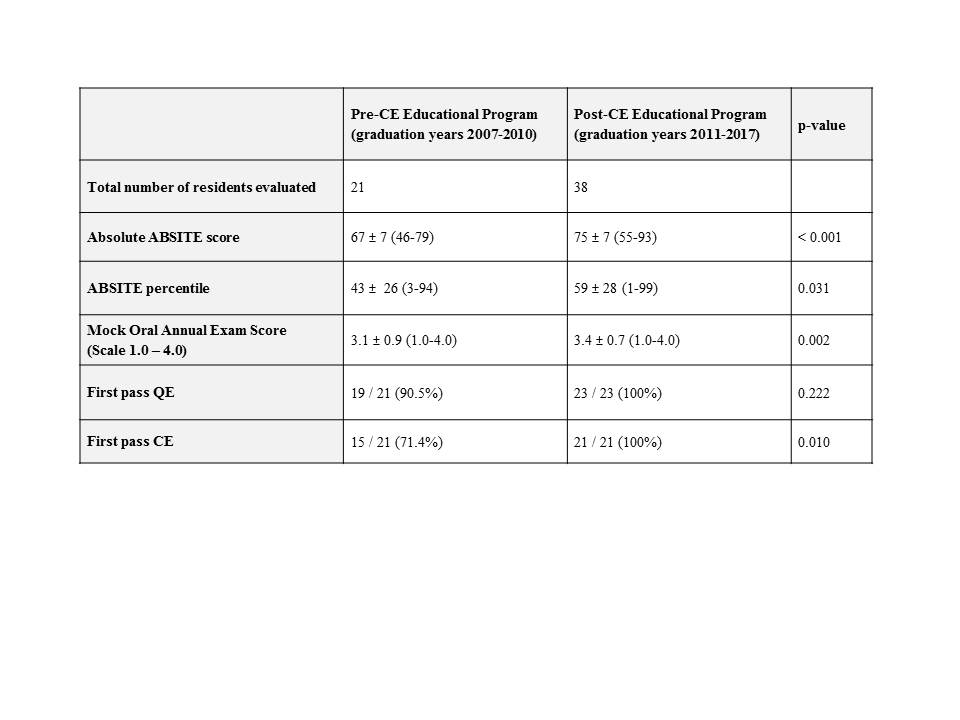L. E. Fischer1,2, M. Snyder1, S. A. Sullivan1, E. F. Foley1, J. A. Greenberg1 1University Of Wisconsin,General Surgery,Madison, WI, USA 2Oregon Health And Science University,General Surgery,Portland, OR, USA
Introduction: In order to obtain board certification, the American Board of Surgery requires graduates of general surgery training programs to pass both the written Qualifying Exam (QE) and the oral Certifying Exam (CE). In 2014, the pass rates for the QE and CE were 79% and 78%, respectively. In 2011, the University of Wisconsin instituted a mandatory, faculty-led, monthly CE preparation educational program as a supplement to their existing annual mock oral exam. We hypothesized that the implementation of these sessions would improve the first time pass rate for residents taking the ABS CE at our institution. Secondary outcomes studied were QE pass rate, correlation with ABSITE and mock oral exam scores, cost and type of study materials used, perception of exam difficulty, and applicant preparedness.
Methods: A sixteen question survey was sent to 57 out of 59 residents who attended the University of Wisconsin between the years of 2007 and 2015. Email addresses for two former residents could not be located. De-identified data for the ABSITE and first time pass rates for the QE and CE exam were retrospectively collected and analyzed along with survey results. Statistical analysis was performed using SPSS version 22 (Armonk, NY). P-values less than 0.05 were considered significant.
Results: Survey response rate was 77.2%. Of the residents who attempted the CE, first time pass rate was 71.4% (15 of 21) prior to the implementation of the formal CE preparation educational program and 100% (21 of 21) after (p = 0.010). Absolute ABSITE score, ABSITE percentile, and mock oral annual exam grades were all significantly improved after the educational program was initiated (p-values < 0.001, 0.031, and 0.002, respectively). ABSITE and mock oral annual exam scores were significantly associated with passing the QE (0.031 and 0.037, respectively), while mock oral annual exam scores alone were associated with passing the CE (p = 0.004). Survey results showed that residents perceived the annual mock oral exam as significantly more helpful in preparing for the CE after the institution of the formal, monthly educational program (p = 0.036). Overall, applicants felt extremely prepared for the CE (4.70 ± 0.5, Likert scale 1-5).
Conclusion: Formal educational programs instituted during residency can improve resident performance on the ABS certifying exam. The institution of a formal, faculty-led monthly CE preparation educational program at the University of Wisconsin has significantly improved the first time pass rate for the ABS CE. ABSITE and mock oral annual exam scores were also significantly improved. Furthermore, ABSITE scores correlate with QE pass rates, and mock oral annual exam scores correlate with pass rates for both QE and CE.
